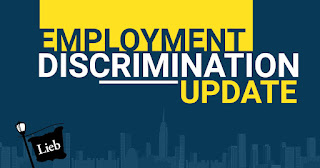On 2/19/2025, EEOC Announced a Crackdown on Anti-American Bias with a target of those engaging in unlawful national origin discrimination, including employers and staffing agencies. By emphasizing staffing agencies in its Press Release, it appears that EEOC is targeting staffing agency that focus on foreign workers and they should lawyer-up immediately.
What You Need to Know
The U.S. Equal Employment Opportunity Commission (EEOC) has announced a renewed focus on combating national origin discrimination, with a particular emphasis on protecting American workers from unlawful hiring preferences that favor non-American employees. Acting Chair Andrea Lucas made it clear that the agency will be increasing enforcement efforts against employers, staffing agencies, and other entities that engage in illegal hiring practices that disadvantage American workers. Read the full EEOC press release here.
Summary of the EEOC’s Announcement
The EEOC is intensifying enforcement against employers that unlawfully prefer non-American workers over American workers, citing violations of Title VII of the Civil Rights Act. The agency aims to deter illegal migration and curb the abuse of legal immigration programs by holding employers accountable for discriminatory hiring practices.
What Employers Need to Know
Employers should immediately review their hiring, recruitment, and staffing policies to ensure compliance with Title VII’s prohibition on national origin discrimination. Common illegal practices include:
- Preferring non-American workers over American workers due to perceived cost savings or ease of exploitation.
- Hiring practices that intentionally exclude U.S. citizens or lawful permanent residents in favor of visa holders.
- Making employment decisions based on biased stereotypes about work ethic, productivity, or compliance.
- Complying with client demands for a foreign workforce over qualified American workers.
The EEOC has made it clear that these discriminatory practices will not be tolerated, and businesses found to be in violation may face significant legal and financial penalties.
What Employees Need to Know
Employees, whether American or non-American, are protected under federal law from national origin discrimination. If you suspect that an employer is favoring foreign workers over qualified American workers—or engaging in any other form of national origin discrimination—you have the right to file a complaint with the EEOC within 300 days (in NY, but may be 180 days elsewhere) of the discriminatory action. Employees are protected from retaliation for reporting discrimination, and the EEOC can investigate claims and, if necessary, give you a right to sue letter so you can sue in Federal Court to recover lost wages, emotional support damages, and your attorneys' fees.




